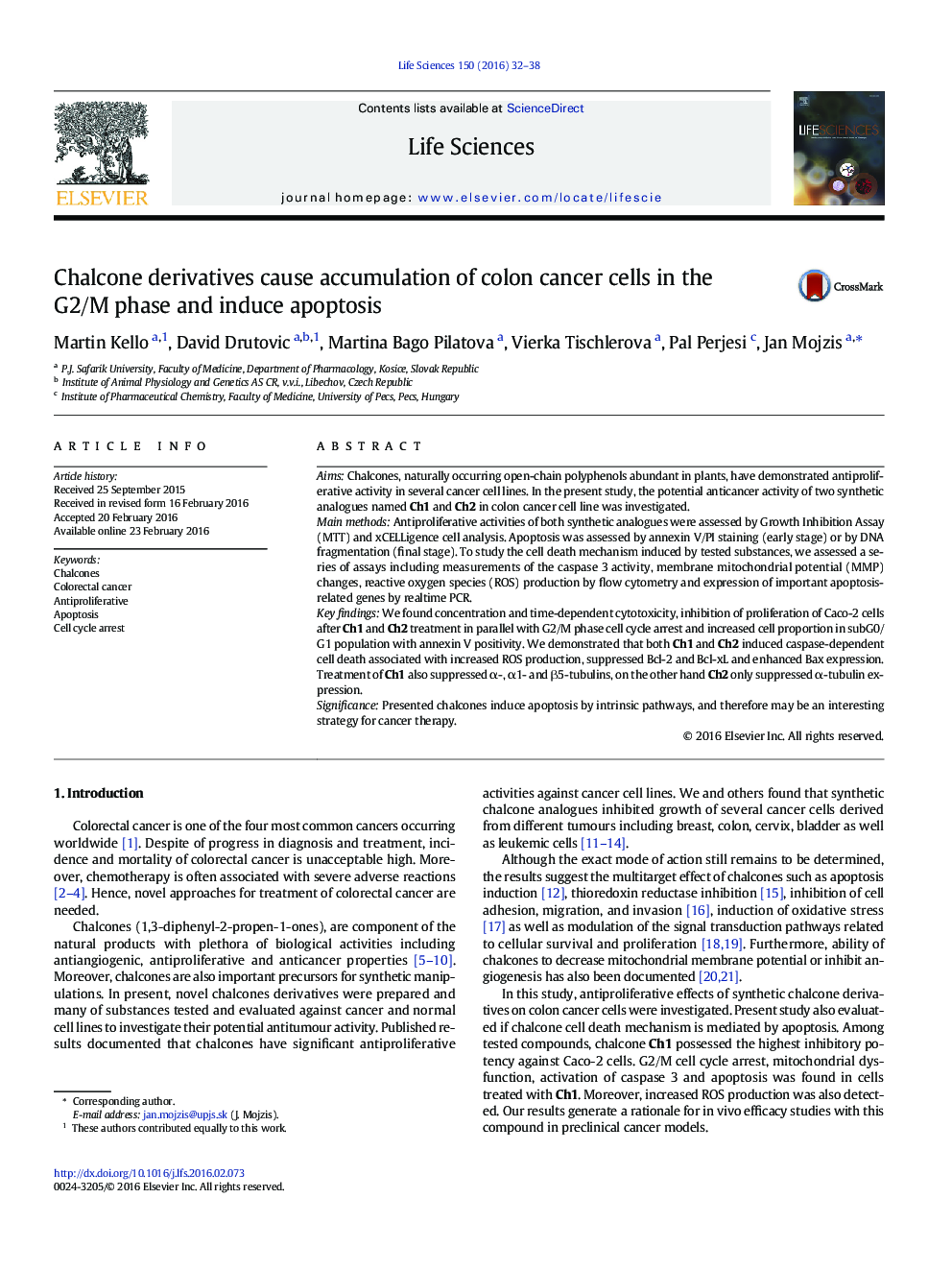| Article ID | Journal | Published Year | Pages | File Type |
|---|---|---|---|---|
| 2550470 | Life Sciences | 2016 | 7 Pages |
AimsChalcones, naturally occurring open-chain polyphenols abundant in plants, have demonstrated antiproliferative activity in several cancer cell lines. In the present study, the potential anticancer activity of two synthetic analogues named Ch1 and Ch2 in colon cancer cell line was investigated.Main methodsAntiproliferative activities of both synthetic analogues were assessed by Growth Inhibition Assay (MTT) and xCELLigence cell analysis. Apoptosis was assessed by annexin V/PI staining (early stage) or by DNA fragmentation (final stage). To study the cell death mechanism induced by tested substances, we assessed a series of assays including measurements of the caspase 3 activity, membrane mitochondrial potential (MMP) changes, reactive oxygen species (ROS) production by flow cytometry and expression of important apoptosis-related genes by realtime PCR.Key findingsWe found concentration and time-dependent cytotoxicity, inhibition of proliferation of Caco-2 cells after Ch1 and Ch2 treatment in parallel with G2/M phase cell cycle arrest and increased cell proportion in subG0/G1 population with annexin V positivity. We demonstrated that both Ch1 and Ch2 induced caspase-dependent cell death associated with increased ROS production, suppressed Bcl-2 and Bcl-xL and enhanced Bax expression. Treatment of Ch1 also suppressed α-, α1- and β5-tubulins, on the other hand Ch2 only suppressed α-tubulin expression.SignificancePresented chalcones induce apoptosis by intrinsic pathways, and therefore may be an interesting strategy for cancer therapy.
